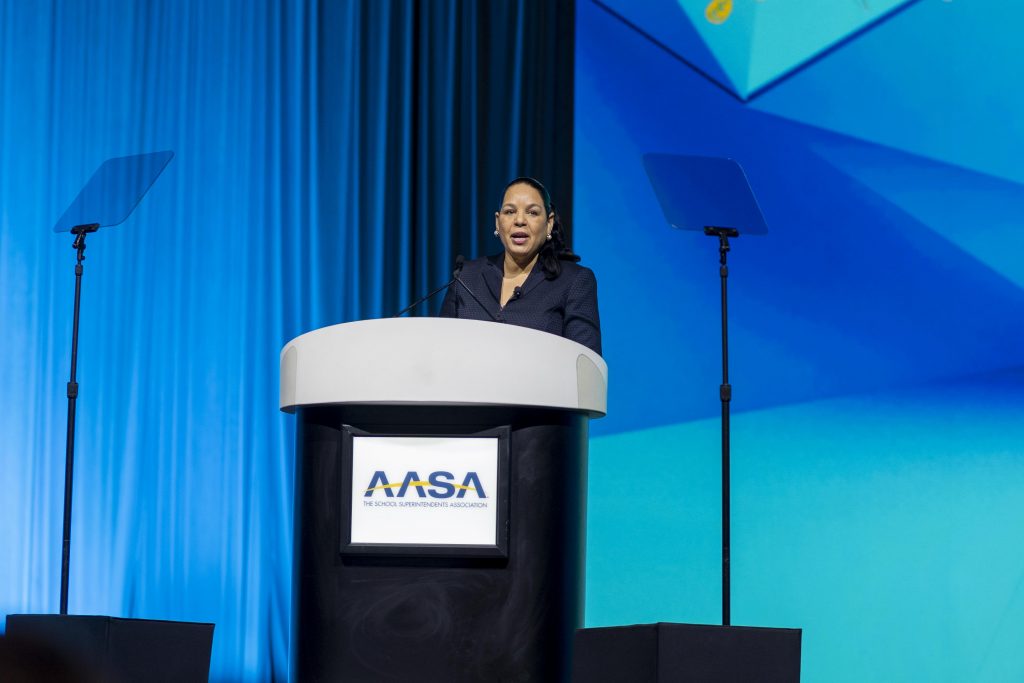School superintendents are the first responders of democracy — they survive and help others to survive, said the dean emeritus of Howard University’s School of Education.
“Schools are the place where democracy can occur,” said Leslie Fenwick, the keynote speaker at the 2nd General Session of the National Conference on Education on Friday. She emphasized the need for the public education system to revolutionize and transform, saying that state constitutions are “living, breathing documents. They are not dead.”
Her speech was replete with historical references about race and education in the U.S. and Fenwick pointed to their impact on today’s schooling and educator diversity. The Brown v. Board of Education decision, Fenwick said, did not mandate that Black schools be closed and all white schools be integrated, yet this was the result of the landmark court case.
This put Black educators with high qualifications out of work and ensured that students were taught and led by more white teachers and principals, uncertified and often from outside the profession. The effect trickles into today’s system, with students of color being 70 percent more likely than white students to have a teacher who is not certified.
“How do we continue to malnourish students, raise the bar for what they must achieve on standardized tests and lower the standards for their [educators]?” asked Fenwick.
Fenwick posed a couple key questions: What policies privilege some and disenfranchise others, and what can we each do to improve these policies? From whom does the education system get its financial divestments?
Leaders in education and other organizations that invest in public schooling need to be part of the revolution, Fenwick said, a sentiment that she said these leaders echoed in a meeting. Students need to be educated on the history of race in this country, using age appropriate resources and lessons, she added.
During the session, Fenwick challenged attendees by playing a True or False game, making statements such as “There are more Black men in prison than in college (False)” and “Black 12th graders are more likely to partake in alcohol, tobacco and illicit drugs than white 12th graders (False).”
These stereotypes, as compared with true data and facts, perpetuate myths that misrepresent Black people and students, Fenwick said. “Let’s dump the litany of negativity and see where accurate” reporting of facts take public education, she added.
As a closing note, Fenwick pondered a hypothetical: how might students and systems have benefitted if the schools had been truly integrated after Brown?
“It’s difficult to untangle the damage done from the progress made,” she said. “This is the legacy of our public schools and this is the legacy our students must live with … This era is calling on us to be and do something different.”
Fenwick’s upcoming book, Jim Crow’s Pink Slip: The Untold Story of Black Principal and Teacher Leadership, discusses such history and suggestions for moving forward at this pivotal moment in education.
(Jacqueline Hyman is managing editor for Conference Daily Online and senior editorial assistant for AASA’s School Administrator magazine.)


